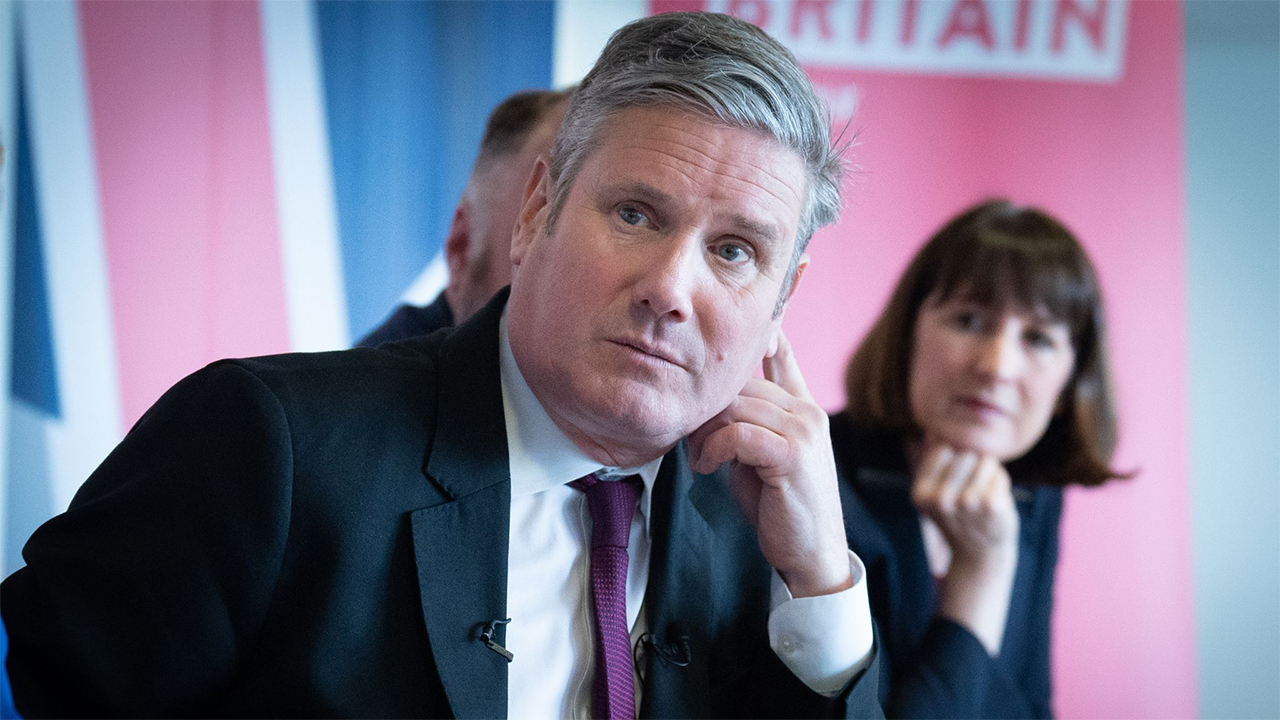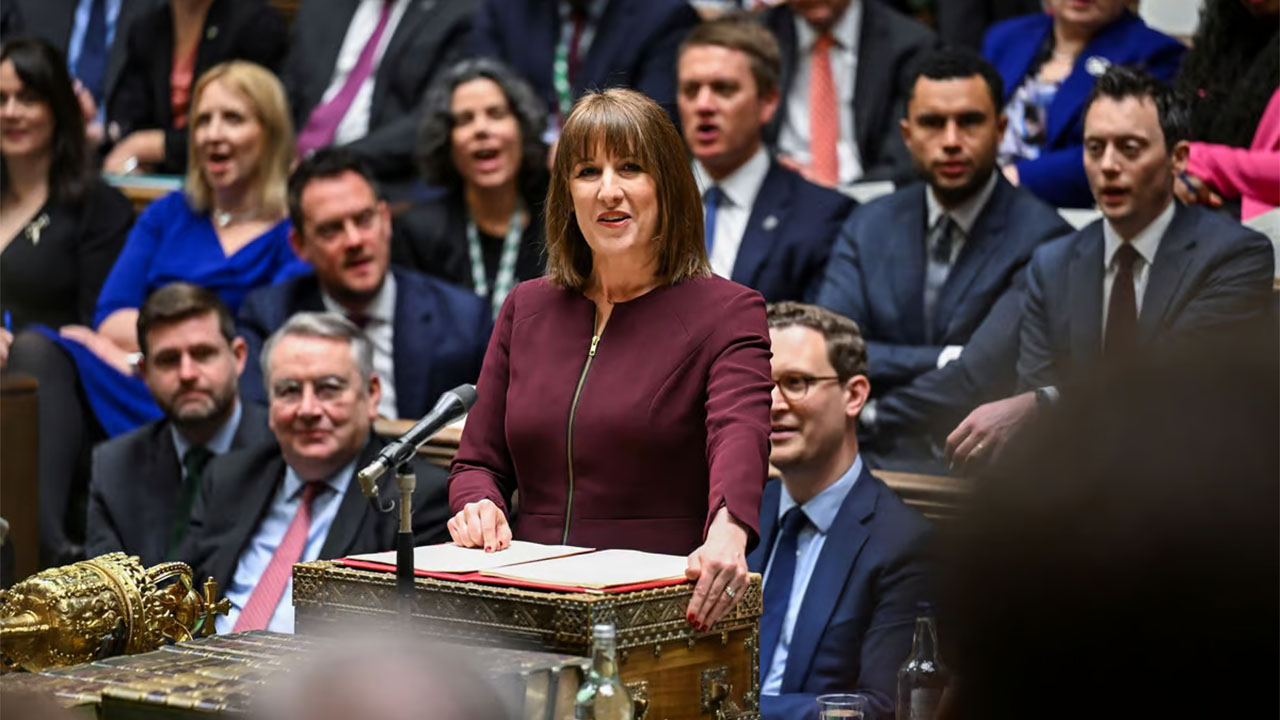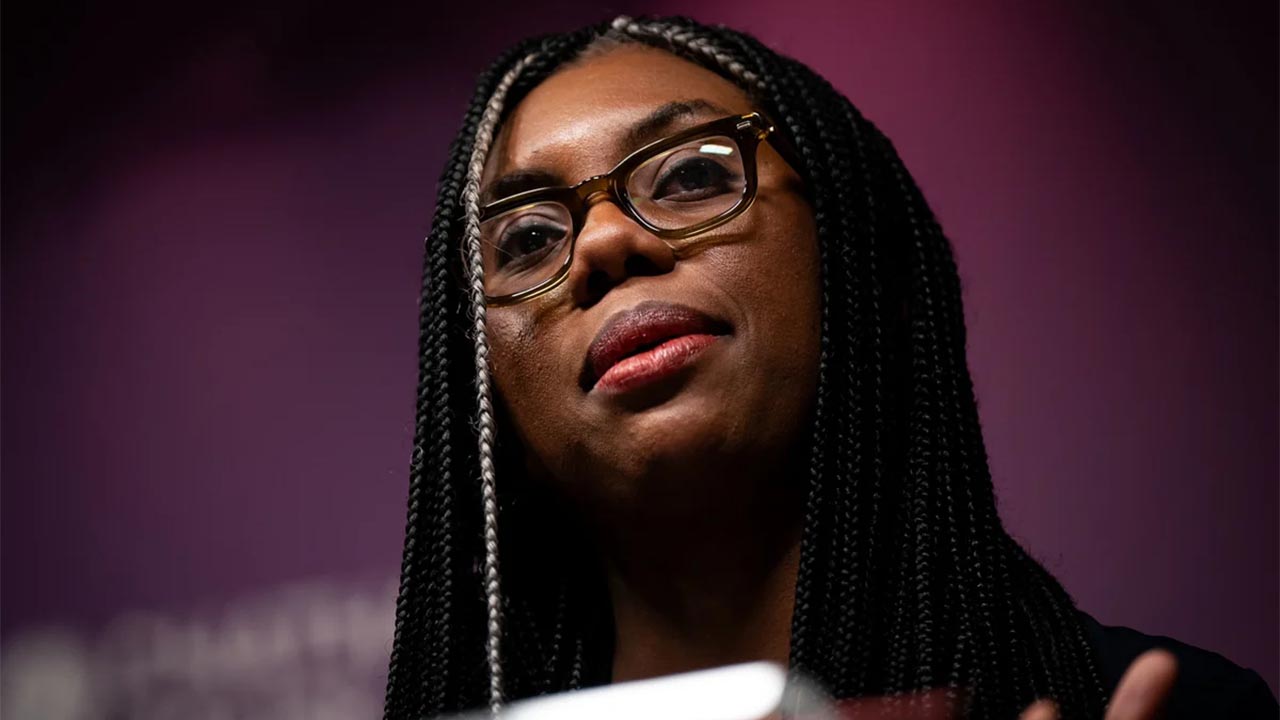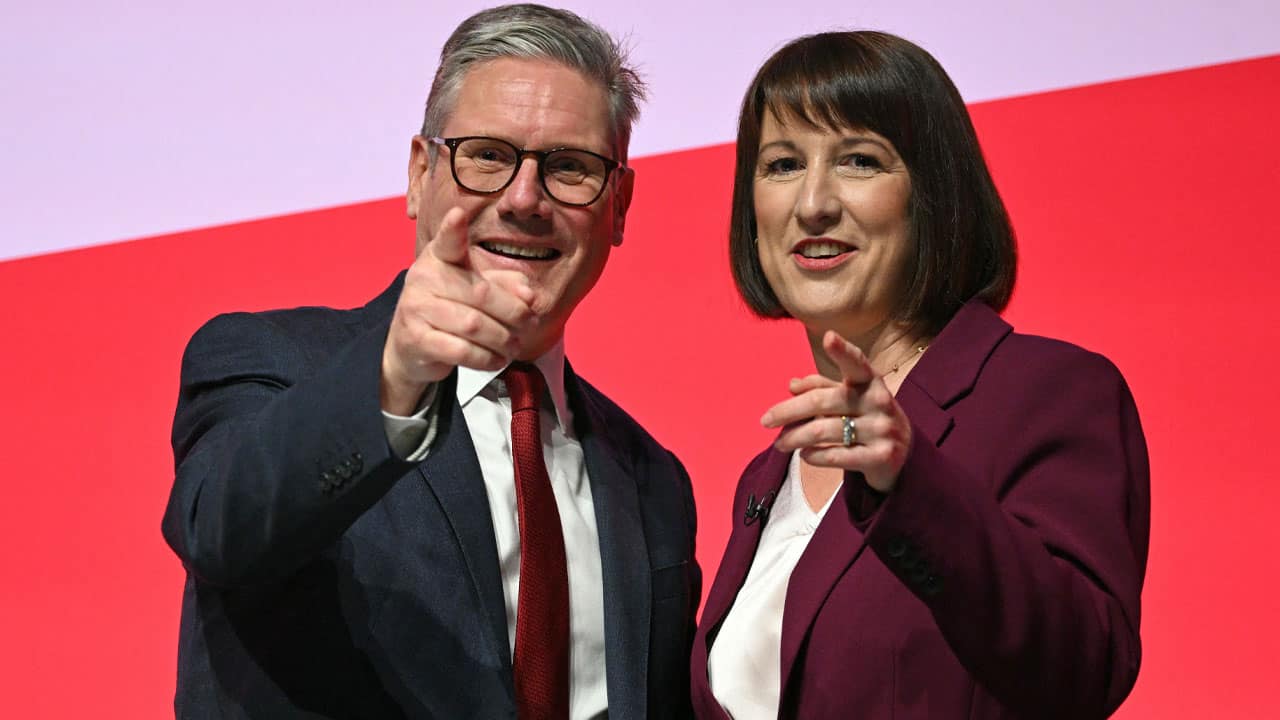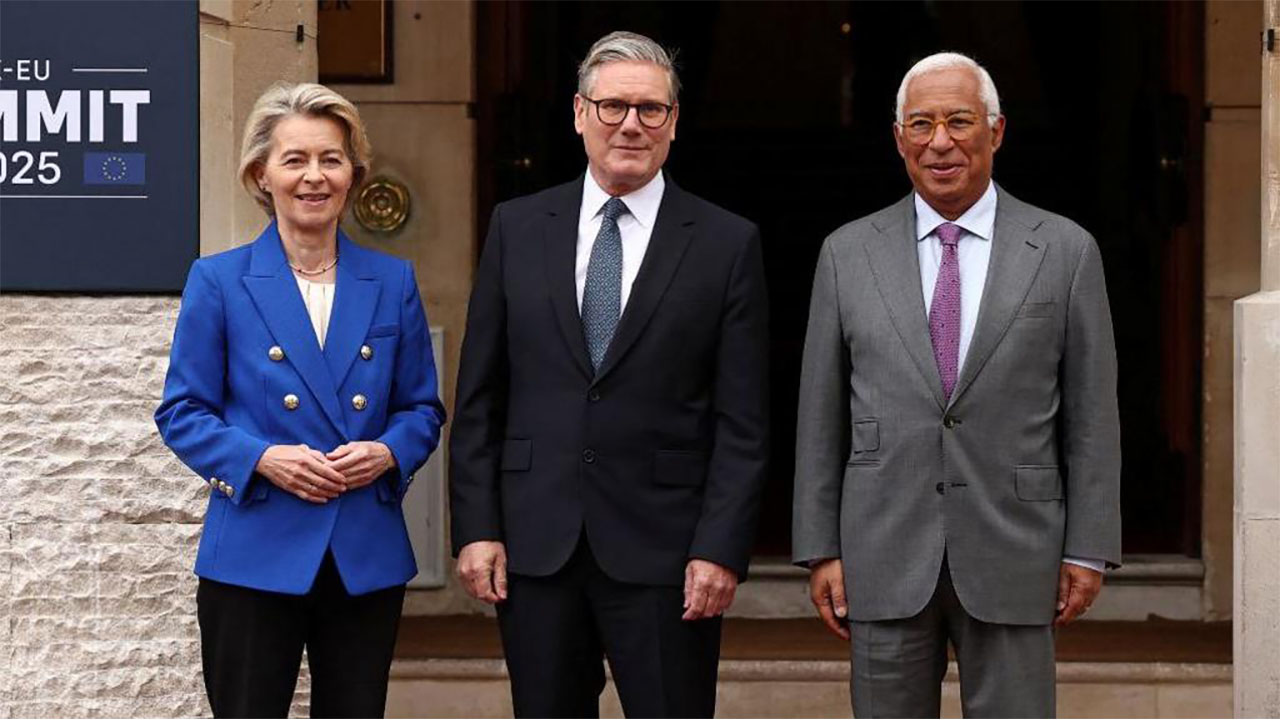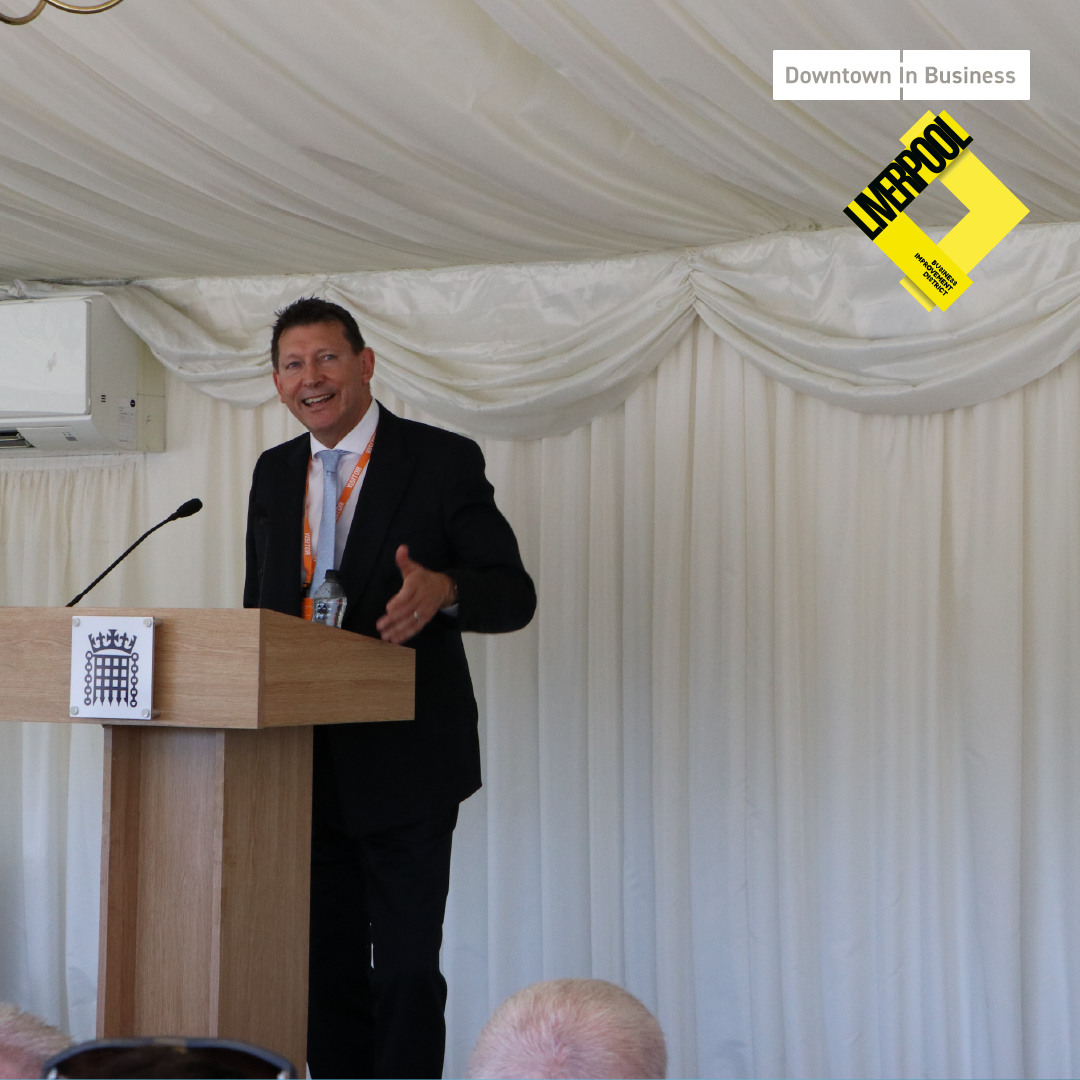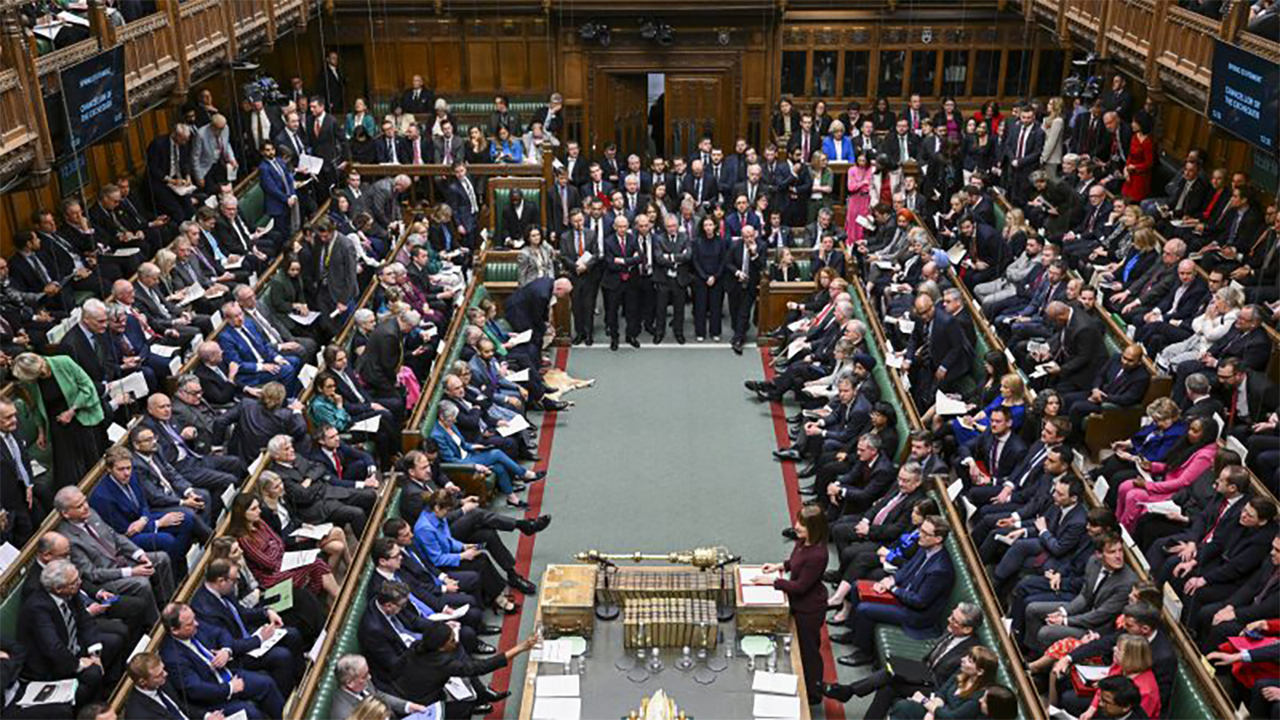It has been a bad week for Labour and Keir Starmer. Having been able to sit back and watch as successive Conservative prime ministers have bounced from crisis to crisis, and the Tory Party has become the very definition of shambles, the opposition has had the sort of week that reminds them and political commentators alike that – 20-point poll lead or not – unforeseen events can quickly change the political mood of the country.
It all started last Thursday, when Labour’s leadership confirmed that they were ditching their much-trumpeted commitment to spend £28 billion a year on the green agenda. When announced by shadow chancellor Rachael Reeves back at the party’s conference in Liverpool in 2021, this was said to be Labour’s flagship policy that was going to be the centrepiece of a new industrial strategy and drive forward the UK economy.
Of course, a series of major shocks to both domestic and geopolitics have happened since. The Liz Truss financial crash, Ukraine, and the Middle East conflict to name but three. As the Tories spotted an opportunity to highlight an uncosted and expensive Labour spending plan – “where is the £28 billion coming from” being the default remark of any government minister given the opportunity to make it – Reeves and her Treasury team did begin to water down the ambitions of both the financial investment, and the time frame in which the policy would be delivered.
Unfortunately for her, the message never quite cut through, leaving the £28 billion in play for Tory attacks. That they finally made a full U-turn on the policy was of little surprise. But the length of time it has taken for that announcement to be made, allowed the government to open up another popular theme for them. Keir Starmer is a ditherer and a flip-flopper.
Add that the disappointment that will be felt by many Labour activists and environmentalists, and it is easy to see why the change of course – necessary to prevent a re-run of the ‘Labour Tax bombshell’ campaign that arguably cost Neil Kinnock election victory in 1992 – gave Starmer an uncomfortable 48-hours.
However, worse, much worse, was to come. Over the weekend it was reported that Labour’s candidate in the Rochdale by-election, Azhar Ali, had made antisemitic comments at a meeting back in the Autumn. Initially Labour, though condemning his remarks, indicated that, following Ali’s apology, they would continue to back their man.
Given that Labour had suspended other party members, and indeed MPs, for what one could easily argue were less offensive pronouncements, the decision failed to satisfy many within the party, whilst Jewish groups expressed concern too.
When further antisemitic remarks were revealed from Ali, and another Labour parliamentary candidate Graham Jones, at the same meeting, the decision was finally made to suspend the Rochdale candidate and, in effect, Labour’s campaign to retain the seat. Jones, too, has been suspended from the party pending investigation.
Again, the charge against Starmer of ditherer and flip-flopper is an easy one for his opponents to make, with even some of his staunchest allies wondering privately why support for Azhar Ali was not withdrawn as soon as his initial comments had come to light.
The frustrating thing for party strategists is that all this mess is of Labours own making.
The £28 Billion green commitment should have been very clearly abandoned the day after Liz Truss crashed the economy. Hard for the Conservatives to attack them then.
And the Rochdale debacle is, at least in part, down to Labour’s lack of self-confidence.
The spectre of a George Galloway bandwagon riding into the Greater Manchester town and building a pro-Palestinian campaign under the badge of his ‘Workers Party’ convinced Labour that they should dispense with the usual period of mourning, following the death of Rochdale’s MP Sir Tony Lloyd, and instead go for a snap poll.
Clearly, the usual detailed due diligence that ordinarily accompanies the selection of by-election candidates was also dispensed with – allowing Azhar Ali to emerge as Labours choice. A disaster for his party – and for him too.
Given Labour’s national poll lead and the Tories disarray, why is the opposition frit of a character like Galloway? Unless Labour and Starmer quickly begin to show more sure footedness and self-confidence – and quick – then the General Election is likely to be a much closer contest than many had predicted.


